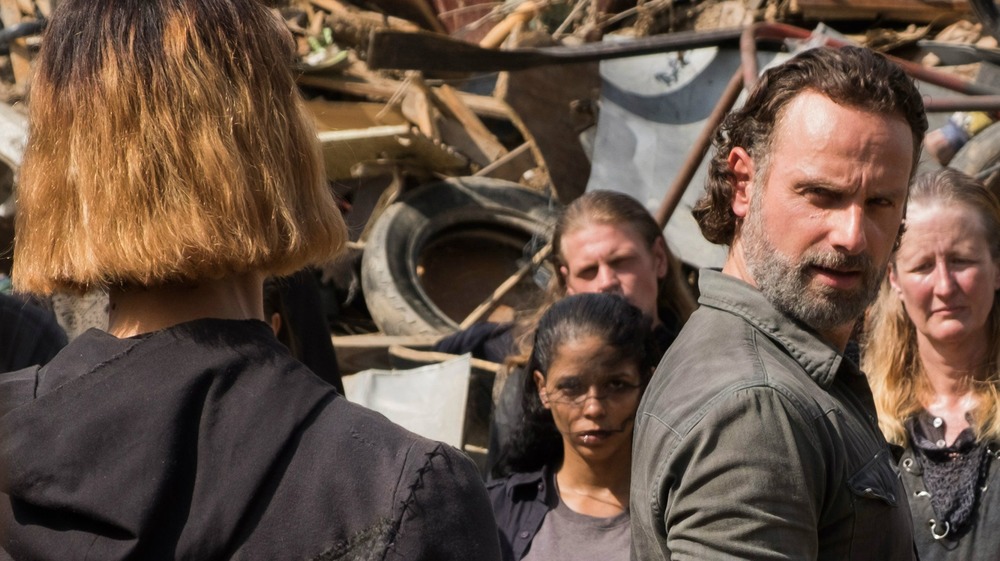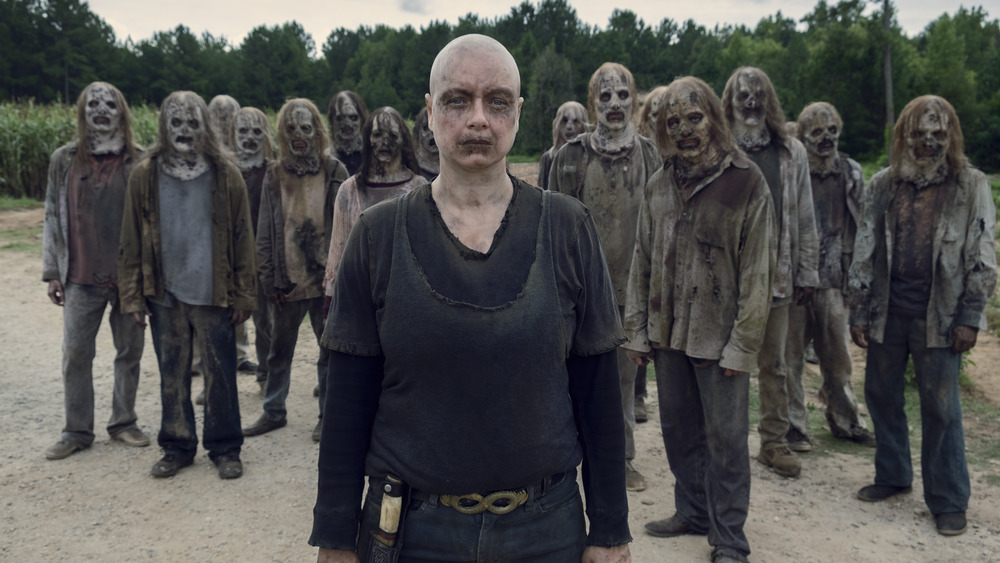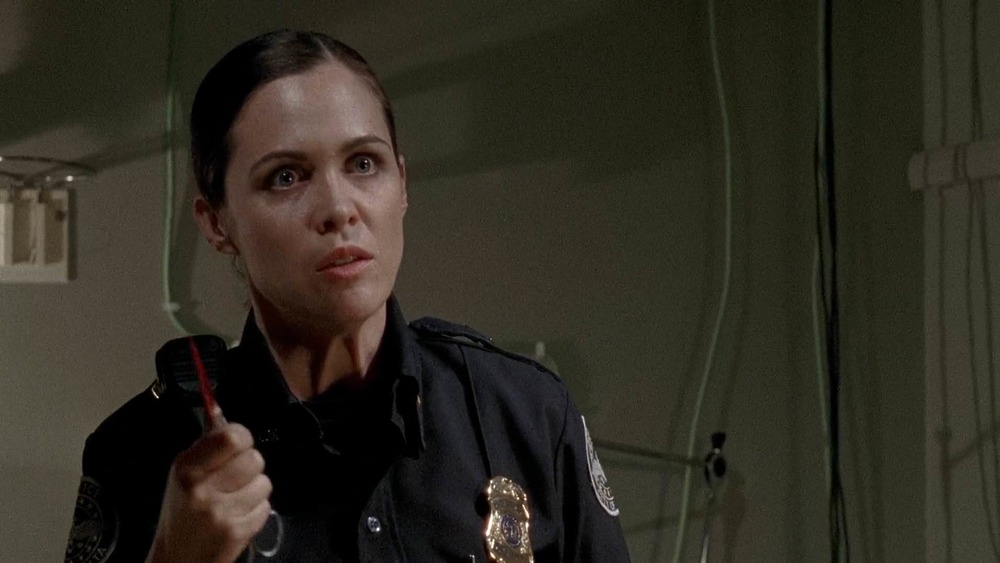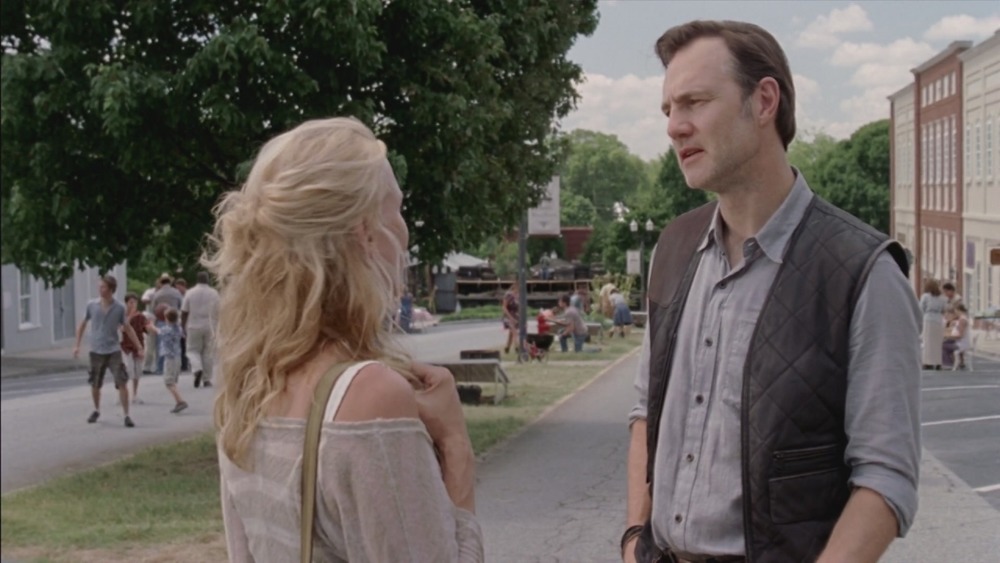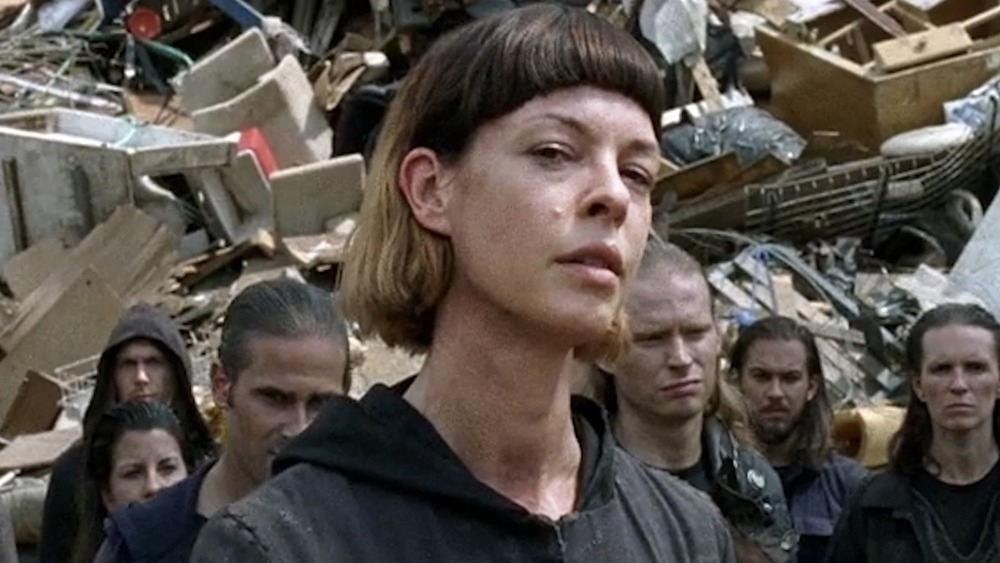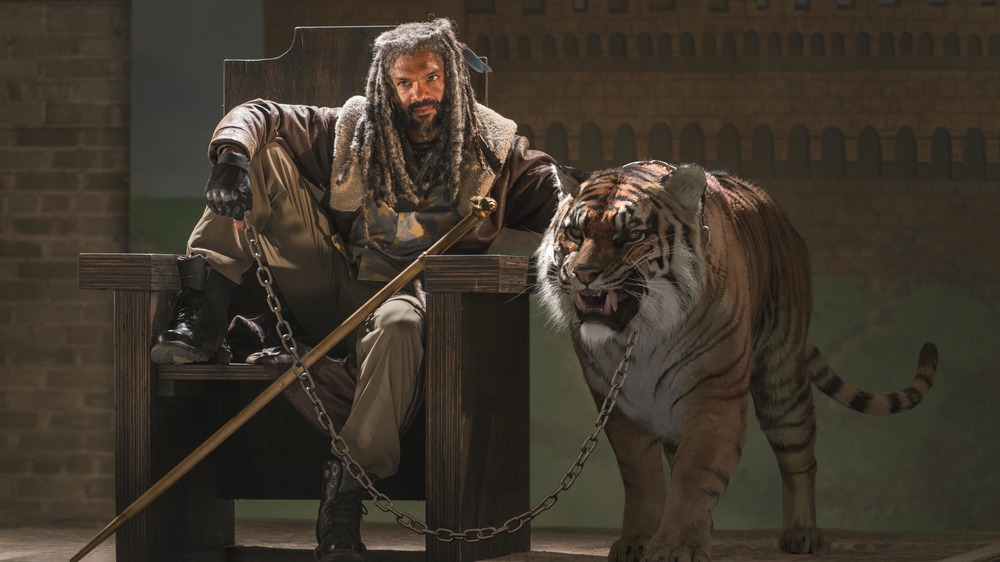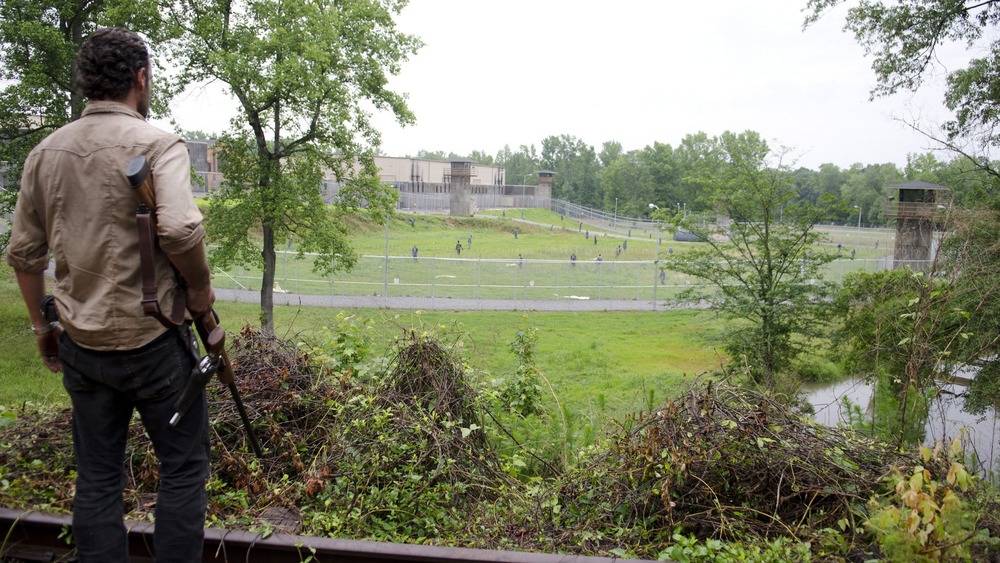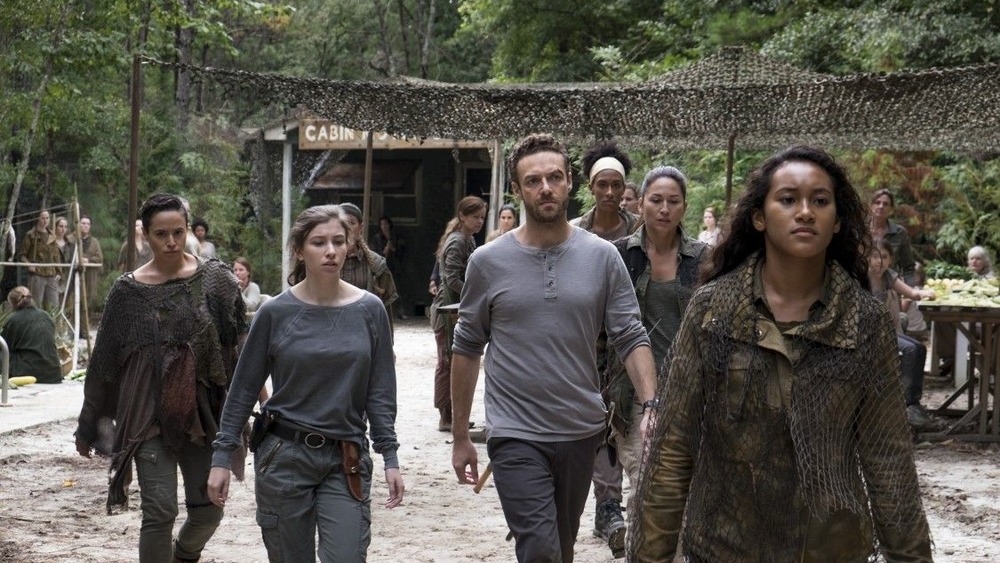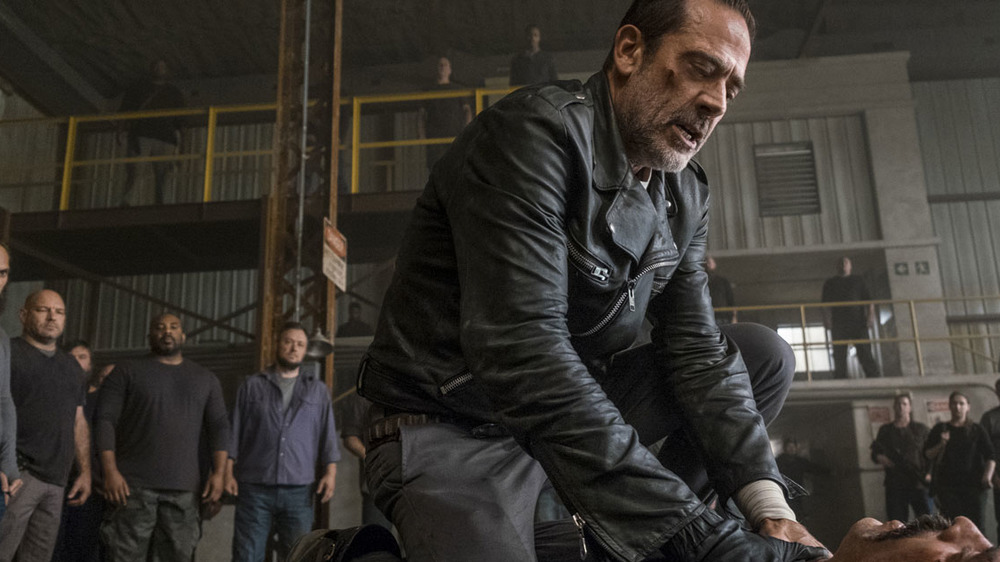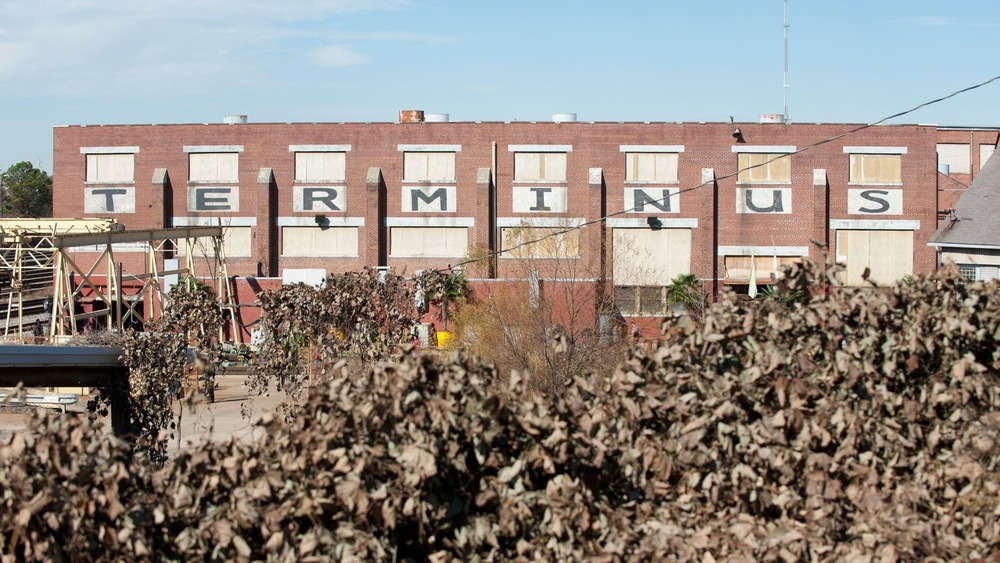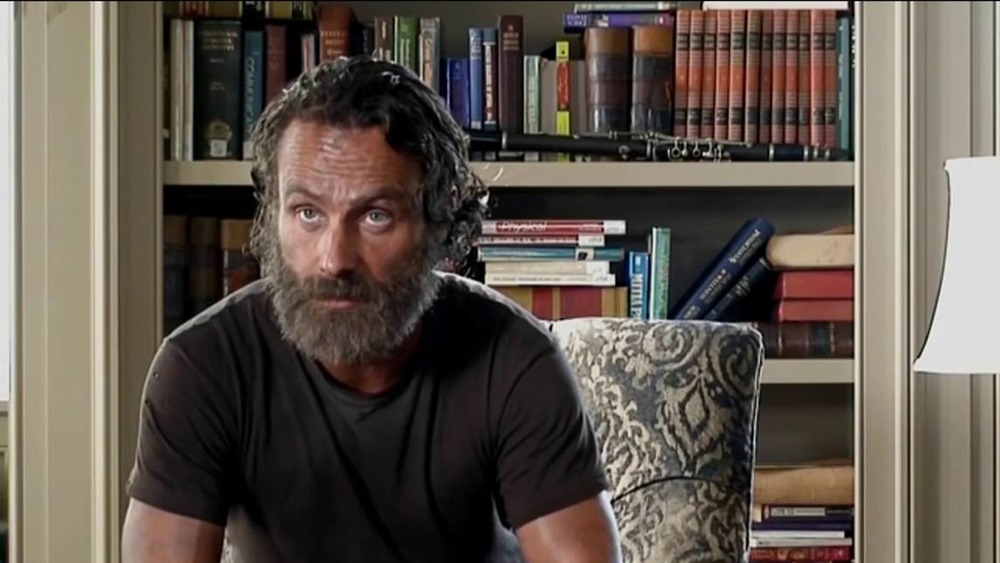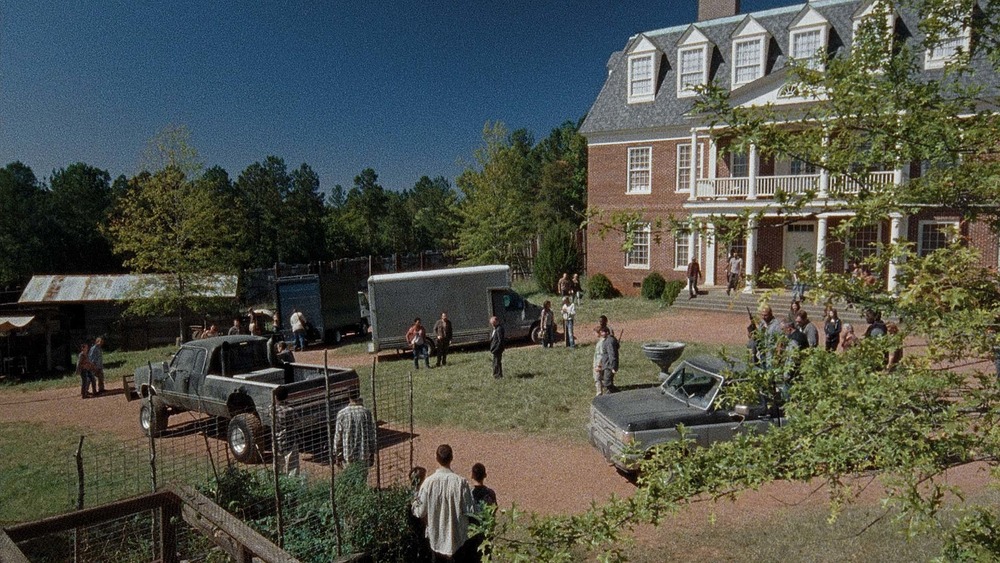The Walking Dead: Every Community Ranked From Worst To Best
Let's face it, the early days of the zombie apocalypse on The Walking Dead were chaos. It was a free-for-all of people in varying degrees of insanity desperately trying to hang onto the world.
The allure of seeing just how far humanity got away from the days of supermarkets and dinner parties in such a short amount of time wore off pretty early and The Walking Dead was forced to explore what the remaining survivors on the planet did to rebuild. It was time to abandon the old ways, recognize that you were never going to have to answer for that library late fee and get to work either rebooting civilization or succumbing to the harsh, unforgiving wasteland of walkers.
There were a lot of really great ways to survive and live in the zombie apocalypse, but some were just plain better than others. Some decided to give up and let the walkers take charge while others fought a constant battle for security and safety. Those who chose to fight did so with varying degrees of comfort. Whether it was a sprawling neighborhood of McMansions or a literal trash heap, those who braved the onset of their loved ones turning into mindless cannibals had their pick of the litter when it came to places to settle down and live out whatever remained of their lives.
Acknowledging that not all communities on The Walking Dead were created equal, below is a ranking of each one from worst to best.
The Whisperers just gave up
Huge points get taken off for this community because they don't allow themselves to settle down. This faction decided early on that they didn't want to bother with the trials and tribulations of hanging onto the world that was. Instead, they decided to cede control of the planet to the zombies by living among them.
Rather than build walls to keep the walkers out, they donned cured-flesh masks that allowed them to blend in with the dead, even strategically herding them for their benefit at times. Part of their philosophy was that humanity needed to get back to its more animalistic roots. Therefore, they operated on a societal basis of hierarchy, with an Alpha leading their every move and making all their decisions.
Although they successfully eliminated walkers as a threat to their daily lives, it just didn't feel like a great way to live. Setting aside the fact that one errant move that appeared too human would result in your only source of protection in this world ripping you to shreds, a Whisperer was at the mercy of their Alpha. If Alpha decided the herd was moving one way, that was the way they went. If Alpha decided to start a war with well-armed humans who weren't doing this weird flesh mask thing, they went to war. In short, there's not much difference between a Whisperer and a regular zombie other than, technically, freedom.
Therefore, they rank worst out of all the communities.
Grady Memorial Hospital was a literal police state
This is a great example of something that sounds terrific on paper being absolutely trash in practice.
At the onset of the apocalypse, a handful of police officers in Atlanta managed to maintain their rank in society amongst a hospital skeleton crew as the city was literally bombed all around them. Their leader, Dawn Lerner, had the respect of her fellow officers due to her rank, which meant increasingly less with each passing, lawless day.
Eventually, supplies dwindled and she implemented a system of taking survivors in for medical treatment only to force them to pay off the debt they incurred for being saved, fed and secured for the duration of their illness or injury.
Unable to keep the hospital as well as her status within the tense community afloat, Dawn resorted to more hostile measures, basically enslaving anyone that the police snatched up. In a world where humanity is scarce and decisions are being made on a life-or-death level, having to defer to the judgment and power of a former law enforcement officer just sounded like a nightmare.
For Dawn and her citizens, life became about serving a singular goal — keeping her in power. It's not surprising that things ended when one "patient" finally had enough and sacrificed her life to kill Dawn — the place was a powder keg that did what powder kegs inevitably do.
Woodbury seemed normal on the outside
Woodbury gets credit for being one of the first safe havens built from the ground up after the onset of the apocalypse. The Governor led a small group of people to clear out, fortify and make the very small town somewhat self-sustaining at a time when most other people were wandering the woods hoping that the next person they encountered doesn't put up much of a fight for their supplies.
Under The Governor's leadership, they even managed to plant crops and get the power back on so that some small slice of normal life was restored to a little more than 70 people. However, although comfortable, the residents of Woodbury were completely unaware of the day-to-day danger they faced — mostly from their immensely insane leader.
The viewers knew The Governor to be a heinous individual capable of horrific crimes. However, the average person who saw tomatoes growing in their neighborhood, knowing a harsh, bloody wasteland waited outside the walls, probably wasn't looking too closely at where the latest shipment of supplies came from or how the viciously violent group that went out looking even found them.
This ignorance came to a head when it was time for war with Rick Grimes' group in the prison. The citizens of Woodbury thought they were the good guys when they launched their attack, but those that didn't lose in battle were cut down by The Governor himself because... well, he was insane.
The Scavengers set a low bar for survival
Once you survive the apocalypse, the question becomes what kind of day-to-day life is acceptable for you to survive in? For the members of The Scavengers, the answer to that question had a pretty low bar.
While the people around them were clearing out prisons, factories and small towns, a woman calling herself Jadis opted to go a different way by claiming a junkyard.
On paper, it sounds bad. However, if you were looking to survive the outside, it provided security as well as resources like scrap metal and even some (albeit gross) food. Meanwhile, Jadis' policy of rarely risking her people's lives or even revealing their presence to the world meant that they could avoid conflict while living in relative comfort with plenty of essential supplies.
It wasn't until the war in the area became so large that Jadis and her people were impossible to ignore and eventually fell into the hands of The Saviors. Until then, however, Jadis had built a resource-heavy community full of loyal people who stayed out of sight and therefore out of mind. They were even making groovy artwork and adopting weird eccentricities like only speaking in broken English. These are things that not-so-well-adjusted people have the luxury to experiment with once safety isn't really a concern.
While living among trash isn't an acceptable way for some to live, one can't deny that Jadis was onto something.
The Kingdom's rule was short-lived
Speaking of odd diction choices in the apocalypse, The Kingdom takes the cake by forcing its most loyal members to adopt a Renaissance Fair style of English as they pledged fealty to their founder and king, Ezekiel.
While having to perform a character as family members died and society crumbled all around you was challenging to say the least, The Kingdom was one of the more coveted places to live.
Early in the apocalypse, Ezekiel saw potential in an abandoned school and fortified it as a place to build a community. Unfortunately, it wasn't around a lot of natural resources nor was it in the most defensible spot. However, that didn't stop the mighty king from putting in the work and turning it into a self-sustaining safe haven. Unfortunately, his hold on The Kingdom was only as strong as the resources it provided once The Saviors came in demanding a portion of their things.
While the king proved more than capable of making deals and warfare, it didn't take long before the resources and good nature of The Kingdom and its citizens wore out. Gone were the days of uniform armor, proud Shakespearian diction and deference to Ezekiel by the time The Kingdom fell. While the community gets credit for changing with the times and giving up its playful games the second the world got a bit bigger, the fact is that Ezekiel invested long term in a place with a short expiration date.
The Prison was no hotel
If the apocalypse were to start tomorrow, a lot of people would likely run to their nearest prison and position themselves snugly behind a bunch of walls designed to keep people in, right?
Wrong. The Prison may seem like a great place to live, and Rick and his group of survivors did their best for a long time. However, the logistics of maintaining a prison were a constant struggle.
For one, the place was designed to be maintained by a large staff of guards, cooks, administrators and more. When in doubt, prison labor filled in the gaps. When the survivors arrived, it was a little more than a dozen people trying to manage a massive facility. While blocking off a section of the prison was easy enough, they were constantly plagued by walkers getting past the gates and maintaining upkeep on the handful of systems and infrastructure that kept them safe.
Meanwhile, its curbside appeal made it a constant target for attacks, which is ultimately how the prison fell. In a desperate world, having something as shiny and secure as a prison was too often an invitation for outsiders to take what wasn't theirs.
A place can be as safe as possible from walkers, but as the show constantly reminds its audience, human beings are the real threat in this world. The walls designed to keep bad people in have strangely very little effect on keeping them out when the world goes to hell.
Oceanside was the little community that could
This community came about after another settlement fell to the ruthless tactics of soon-to-be Savior big wig Simon.
After suffering a defeat that saw every male member of their society executed, the women and children fled to re-establish themselves elsewhere. They became the first group on this list to utilize their natural geography by putting the ocean at their back to prevent walkers coming at them from every side.
They decided that sharing what they had with the world was no longer an option because someone like Simon would eventually strong arm their way into taking it. As a result, they spent most of their time doing the bare minimum to survive while murdering anyone that might make their presence known to the rest of the world.
Unfortunately, their main concern was staying hidden, thus preventing them from really building the Oceanside community into something grand until after Rick's war with Negan. Even then, resources were scarce and Oceanside became little more than a stopping point for people to travel to more secure locations.
However, the community gets a lot of credit for being naturally fortified from the water as well as standing tall in the face of defeat and being a testament to re-establishment in a world where most other communities would have just been wiped off the map for good. Oceanside gets top marks for its resilience as well as its tactical position.
The Sanctuary was a model of ruthless efficiency
Fortified walls, an endless supply of badass fighters, resources and a somewhat merit-based economy are some key building blocks to starting a new civilization that The Sanctuary had in spades.
Led by its ruthless and cunning founder, Negan, members of The Sanctuary were asked to join an incredibly unforgiving cult that promised their safety in exchange for entering a debt system similar to that of Grady Memorial Hospital. People knew that paying Negan off was not realistic, prompting many to try and flee. However, Negan and The Saviors were powerful enough to know how to collect on their debts in a way that deterred future dissent.
Unfortunately, all it took was brushing up against the unruly Rick Grimes for everything to crumble. Security was no longer a guarantee, fealty to Negan was no longer a one-way ticket to Easy Street and resources shaken down from other, productive communities dried up in a big hurry.
The problem with ruling by the stick is that, once you encounter someone that isn't afraid to take a few hits, you can't just take your ball and go home. Negan understood that, which is why he waged total war on Rick and his alliance of communities. He knew that there was no way to continue ruling by force if there was an equally powerful civilization in the area whose citizens didn't risk having half their face melted off with an iron at the drop of a hat.
Terminus bit off more than it could chew
Similar to The Sanctuary, Terminus was a large, brick facility that was easily fortified and manned by people to ensure the dead stayed out. However, unlike Negan's cabal, it didn't need to strong-arm surrounding survivors to stay alive.
Its people didn't even need to risk venturing out into the world for supplies. Everything they needed in terms of weapons, equipment and, yes, food, was delivered right to their front door.
After resorting to cannibalism following a horrific attack by a group of villainous rapists, Gareth led his people to cast a net for unsuspecting survivors in the area to come to Terminus thinking it was a grand safe haven. Survivors would arrive with all the gear that let them get that far and promptly surrender it before being clobbered over the head with a baseball bat and made into a feast for real Terminus residents.
Gareth built a society that was sustainable and secure. However, the old question — what terms are you willing to live by? — came up in a gigantic hurry when the cost of entry was becoming a straight up cannibal. Ghoulishness aside, it didn't negate the fact that it was a strong and resourceful safe haven (for a select few) before they met the unholy wrath of Carol Peletier.
One can only survive so long on morally questionable societal means. Gareth seems to have done it the longest in the most efficient way.
Alexandria offered peace until it didn't
This safe haven had literally everything. It was converted from an upscale suburban neighborhood that was designed for sustainability. Once the apocalypse hit, a professor of architecture designed and fortified walls to ensure that both people and walkers could not get in no matter how hard they tried.
There was enough space and empty houses for people to really set some roots, knowing that they didn't have to worry about the hellscape outside. People who made it to Alexandria could breathe, knowing that a career politician made sure no one went crazy and people with experience kept the lights on and the supplies plentiful.
Its location near a mall meant years of supplies before runners had to really start challenging themselves. In short, Alexandria ticked off all the boxes of both safety and comfort. However, being comfortable and safe isn't always the best thing for people in an apocalypse. When danger came knocking, they were all woefully unprepared to deal with it.
Similar to the prison, when you have something that looks this great to a desperate outsider, it will forever be a target. Since settling down in Alexandria, its citizens have done nothing but fight the outside world to varying degrees of success. If you liked a lot of danger and excitement in your life, Alexandria was the place for you. However, the constant warfare contradicted its image as a quiet suburban neighborhood where people could calmly rest their heads at night.
The Hilltop: most desirable place to live
It may not be the flashiest, it may not be the most comfortable, but it's definitely survived and thrived more than any other community with more potential.
The Hilltop was a historic museum house in Virginia before the apocalypse turned it into a safe zone. When the military abandoned it, the survivors decided it was the perfect place to build a stronghold.
Its location in the wilderness meant that large invasions by walkers weren't likely and easy to see coming. Survivors couldn't really sneak up on the place and if they did, they'd have large walls and guards with weapons made at its blacksmith shop to contend with.
Over time, the fertile ground yielded enough crops to make it self-sustaining and give its people precious little reason to venture outside of its security. However, the true strength of The Hilltop was in its leadership. For all his flaws, Gregory was the exact person Hilltop needed to establish and secure the safe haven. However, when he proved ineffective as a wartime leader, the people were lucky enough to see Maggie take charge.
When all else was failing around them, The Hilltop dug in and managed to survive while other, more seemingly secure and stocked communities fell like dominoes. Not only was it a well-built place to live, but it's been helmed by people who are just hardened enough to keep it safe without resorting to drastic measures.
